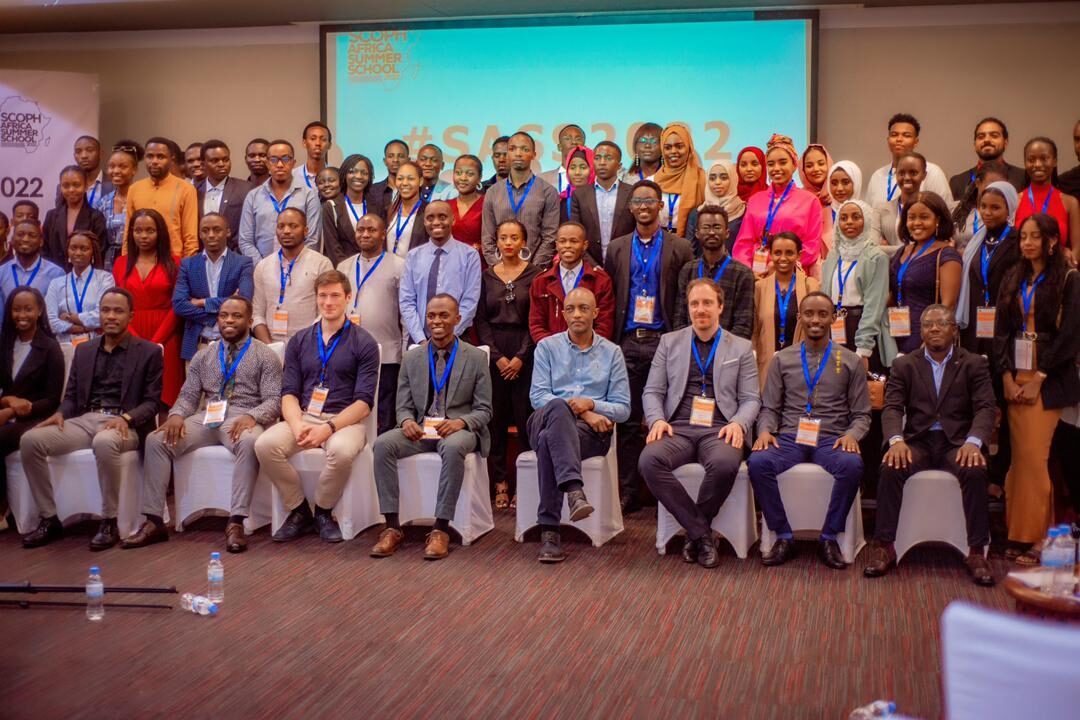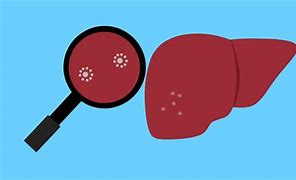WORLD HEPATITIS DAY 2022-IT’S TIME TO TAKE ACTION

While the world is currently recovering from the COVID-19 pandemic, it would be counterintuitive for governments and health-promoting organizations to give a room for other disease-causing viruses such as Hepatitis viruses and HIV among others which can strike global health status. Thus, it is important to us as medical students that we commit to working along with other health care providers and the rest of the globe to celebrate World Hepatitis Day 2022, which is celebrated on July 28 every year. From our view as medical students, on an annual basis we play the role in advocacy and raising awareness through community outreaches, vaccination activities, radio and televisions talks as some of the pivotal means of reaching out to the public to capacitate them about hepatitis.
Briefly, hepatitis is a broad term that means inflammation of the liver which is commonly caused by viruses (viral hepatitis A, B, C, D and E). It can also come as an effect of chemicals, drugs (alcoholic hepatitis), metabolism abnormalities (non-alcoholic hepatitis) and autoimmune diseases of the liver (Autoimmune hepatitis). Viral hepatitis is the one with much incidence of causing hepatitis worldwide where the World Health Organization (WHO) in 2019 estimated that 296 million people worldwide were living with hepatitis B, 58 million people with hepatitis C and about 2.3 billion people worldwide that were infected with one or more of the hepatitis viruses. These infections altogether lead to around 1.4 million deaths per year. HBV and HCV are responsible for 90% of hepatitis effects. (Global hepatitis report, 2017, 2017)
Viral hepatitis represents a disease entity caused by at least five unrelated viruses whose primary site of effect is the hepatocyte cells of the liver. Hepatitis A and E viruses cause only short-term and acute infection but hepatitis B, C and D viruses can cause chronic infection. Below is a detailed account of their etiology and epidemiology of the hepatitis viruses:
Hepatitis A, is an acute self-limited disease resulting from infection with hepatitis A virus (HAV).
- Risk: People in under developed countries
- Incubation period: Average 28 days
- Effects and Outcome of infection: Acute and it can be resolved.
- Major modes of transmission: Fecal-oral route
B virus (HBV), Can cause an acute hepatitis which may last up to 6 months (with or without symptom) and infected people are able to pass the virus in that time., While chronic infection is the persistence of HB for 6months or more after acute infection and places the individual at risk of death from chronic liver disease or primary hepatocellular carcinoma.
- Risky personnel: All ages but mostly adults
- Incubation period: 2-5 months
- Effects and Outcome of infection: acute and chronic
- Major modes of transmission: Parenteral, Sexual and Exposure to infected blood
Hepatitis C virus (HCV), infection produces a persistent infection that is often associated with chronic liver disease.
- Risky personnel: All ages but mostly adults.
- Incubation period:14-180 (average 56).
- Effects and Outcome of infection: Acute and Chronic which result in liver cirrhosis.
- Major modes of transmission: Parenteral, Sexual and Blood or blood product.
Delta hepatitis, is caused by hepatitis delta virus (HDV), an “incomplete” virus and the only viroid known to infect man, it requires an active HBV infection to replicate.
- Risky personnel: it is only possible if person is already affected by HBV OR affected by both of them
- Incubation period: 2-26 weeks
- Effects and Outcome of infection: Acute and chronic effects
- Major modes of transmission: Parenteral
Hepatitis E virus (HEV), is the cause of almost all cases of transmitted non-A, non-B hepatitis and is not known to produce a persistent infection. However, the serological exclusion of the known hepatitis viruses continues to leave cases of hepatitis that clinically appear to be viral in origin.
- Risky personnel: Adults and severe in pregnant women
- Incubation period: 15-64 days
- Effects and Outcome of infection: Acute and resolved.
- Major modes of transmission: Fecal – oral.
Prevention modes
- HAV: Pre-exposure vaccination, hygiene and there is no drug or therapies to treat HAV.
- HBV: Pre/pro exposure vaccination.
- HCV: Blood donor screening and No vaccine for HCV
- HDV: Pre/post exposure vaccination and interferon.
- HEV: Hygiene and resolve on its own within four to six weeks (Margolis, Alter and Hadler, 1997)
The theme of the day is “Achieving the elimination of viral hepatitis within developing health systems.” Since we are a part of the healthcare system, as medical students in MDSAR, we made the decision to take action to prevent hepatitis starting in our community. To that end, we conducted various HEP B vaccination campaigns for all university students and staff, in addition to conducting various global awareness campaigns about how to protect ourselves from this deadly viral disease. Hepatitis can’t wait, therefore we must act swiftly to eradicate the harm it poses by providing every person with access to healthcare services for prevention, diagnosis, treatment, and monitoring. Because we are committed, we will do this.(World and Day, 2015)
REFERENCES
Global hepatitis report, 2017 (2017).
Margolis, H. S., Alter, M. J. and Hadler, S. C. (1997) Viral Infections of Humans, Viral Infections of Humans. doi: 10.1007/978-1-4899-0036-4.
World, O. and Day, H. (2015) ‘World Hepatitis Day’, The Nurse Practitioner, 40(7), p. 8. doi: 10.1097/01.npr.0000466504.31747.ea.
ABOUT THE AUTHOR
TUNGA Christian, is a medical student from the University of Rwanda, Rwanda. he is affiliated with MEDSAR Rwanda (IFMSA NMO) in the Standing committee on Public Health (SCOPH) and he is current national public health officer 2022-2023. TUNGA is passionate about public health, UHC, global surgery, advocacy, and youth empowerment. He is highly interested in research where he believes that through research, we solve every health issue.
Approved by: MIGABO GANIJURU Aristide- MEDSAR VPPRC




8 Comments
Ingabire Laetitia · July 29, 2022 at 12:55 am
This is a great job @TUNGA. Am highly satisfied by your content and how is structured, It’s an amazing one. Keep it up!
Aristide · July 29, 2022 at 7:42 am
Great job by Dr. Tunga. Keep this up!
דירות דיסקרטיות בתל אביב - israel xclub · August 13, 2022 at 4:10 am
I wanted to thank you for this good read!! I absolutely loved every bit of it. Ive got you bookmarked to check out new things you postÖ
Slaapkamer kopen · August 22, 2022 at 3:41 pm
Thank you for the information provided.
https://romantik69.co.il · August 28, 2022 at 9:12 am
I was very pleased to find this great site. I need to to thank you for ones time for this fantastic read!! I definitely loved every bit of it and i also have you book-marked to look at new stuff on your website.
israel night club - נערות ליווי בבת ים vip · November 24, 2022 at 6:10 pm
You should take part in a contest for one of the finest blogs on the web. I most certainly will highly recommend this website!
נערות ליווי במרכז- israel night club · November 25, 2022 at 9:52 pm
Hello there! I simply want to offer you a huge thumbs up for the great info you have got here on this post. I will be coming back to your website for more soon.
נערות ליווי בקיסריה · April 20, 2023 at 3:52 pm
I was pretty pleased to discover this web site. I want to to thank you for your time for this fantastic read!! I definitely really liked every bit of it and I have you book marked to see new things on your web site.